Axis of evil under sanctions: How North Korea and Iran pivot to military rails and can Russia do the same?
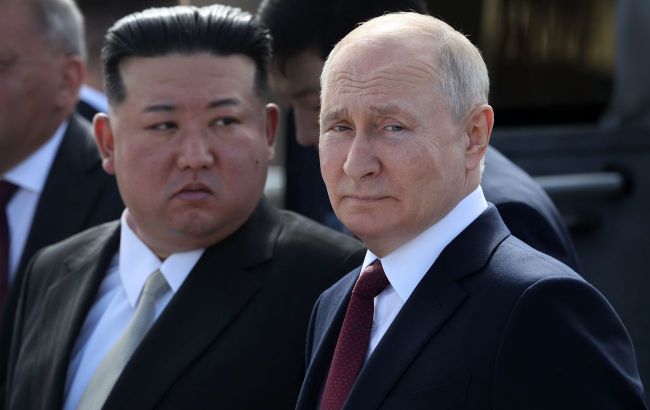 Vladimir Putin and Kim Jong Un (photo: Getty Images)
Vladimir Putin and Kim Jong Un (photo: Getty Images)
Iran and North Korea have been under the pressure of Western sanctions for a long time, but this does not prevent them from developing their defense industries. How do they manage to bypass the restrictions, what is a resilient economy, and will Russia be able to play the long game?
The material includes comments from Ivan Kyrychevskyi, an Expert at the Defense Express Media and Consulting Company, analysis by Iliya Kusa, an Analyst at the Ukrainian Institute for the Future, and information from public sources.
A few weeks ago, the National Agency on Corruption Prevention of Ukraine announced the launch of a database of foreign components in Russian weapons. Imported components are widespread, found in missiles, drones, and aerial bombs. Russians, in particular, do not shy away from foreign microtechnology, as they practically cannot produce it themselves.
Both Western and Russian analysts confirm that the aggressor's economy is growing, especially in the military-industrial sector. Russia has been under unprecedented economic sanctions for almost two years. At first glance, this situation may be surprising, but there are examples in the world of countries that have been under Western economic pressure for decades and not only survive but also continue to produce weapons. Russia's outcast friends - Iran and North Korea are among them. Considering everything, the Kremlin is preparing to learn from their experience.
Resilient economy
The first extensive sanctions against Iran were imposed by the United States in 1979 after the Islamic Revolution. Shortly before this, there were rumors that the fleeing Shah Mohammad Reza Pahlavi might receive political asylum in the United States. This angered radicalized students, leading them to seize the American embassy in Tehran. In response, the U.S. froze all Iranian assets in its banks, and Americans were prohibited from doing business in Iran or cooperating with Iranian companies.
Over more than 40 years, the sanctions package grew, with other countries joining. Today, Iran is prohibited from exporting nuclear, missile, and a significant portion of military products. Cooperation with Iran's navy, any of its financial institutions, and insurance companies is also forbidden. Despite facing challenging conditions, the Iranian economy has taken a position of resistance, managing to support the military-industrial sector and assist allies by supplying weapons to situational and steadfast partners.
Sanctions were not uniform. Over 44 years, there were periods when countries, through temporary agreements, released their grip. For instance, in 2015, the United Kingdom, the United States, France, China, Germany, and Russia signed the so-called "nuclear deal," thereby suspending some sanctions in exchange for concessions from Tehran on nuclear program matters. The hiatus lasted from 2015 to 2017, resulting in economic improvement in Iran. In 2018, the U.S. withdrew from the agreement and reinstated the previous sanctions package.
Iran has adopted the modern concept of a resilient economy in recent years. Due to the ban on cooperation in the oil industry, Tehran had to avoid oil dependence, actively engage in import substitution, strengthen control over currency flows, and most importantly, establish ways to bypass sanctions.
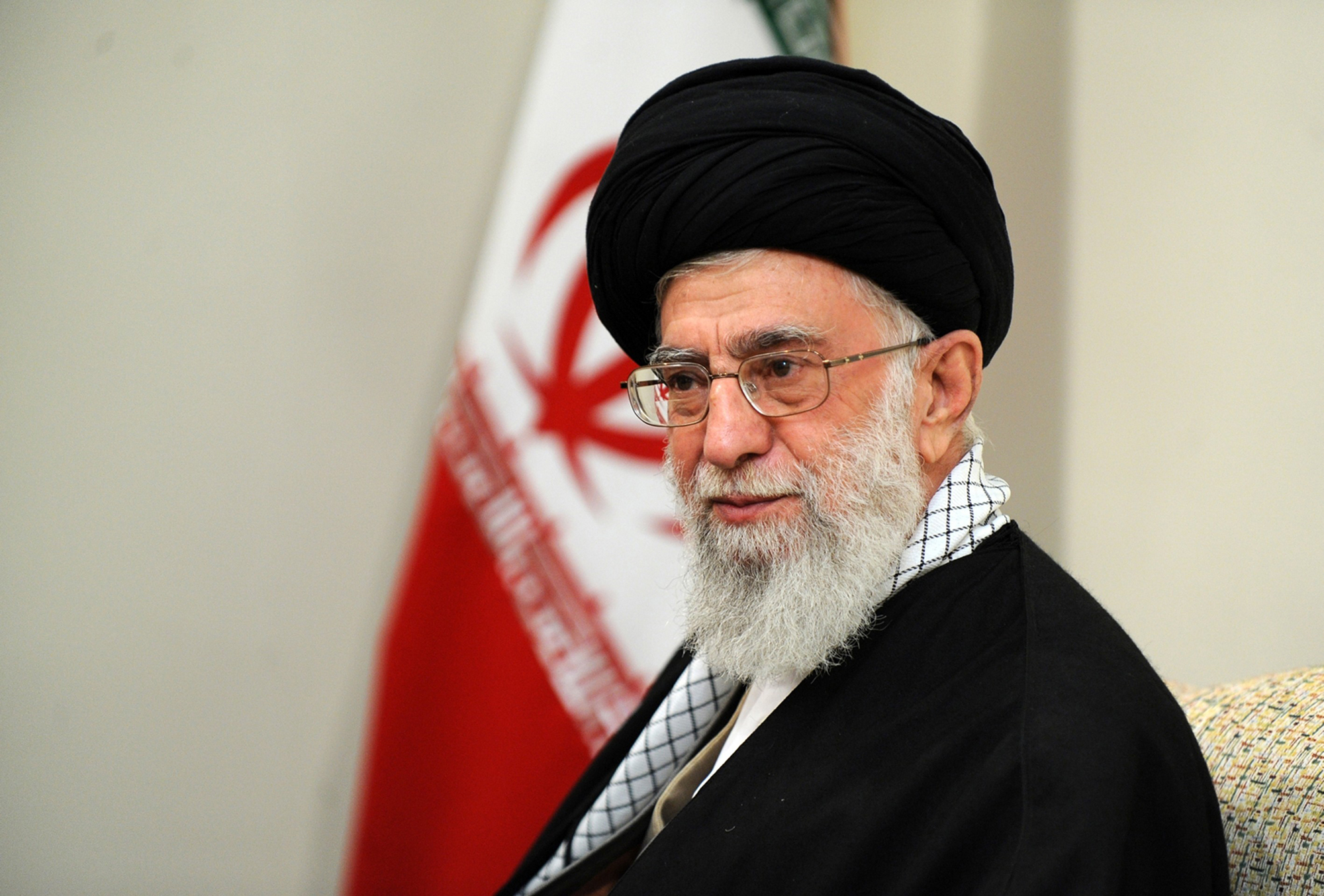
Supreme Leader of Iran, Ali Khamenei (Photo: Getty Images)
In reality, the Iranian government has not come up with anything fundamentally new in this field. Smuggling, gray companies in Western countries, and plain industrial espionage are the main principles on which the Iranian sanctions evasion system is built. For example, the well-known Shahed-136, actively used by Russians, is nothing more than a more modern model of the German DAR drone from the 80s, and the new Iranian Abadil missile is a copy of the American GMLRS for HIMARS.
Although most military equipment is copied from models developed by unfriendly states, the scheme itself works. Iran invests in the development of the military-industrial complex and has probably been successful to the extent that it aids not only terrorist organizations like HAMAS or Hezbollah but also powerful militarized states like Russia. Betting on the growth of the military-industrial complex, at the expense of other sectors, is one of the main principles of the resistance economy, notes analyst Iliya Kusa.
"They understood that they were surrounded by sanctions, and the only way to survive is to resist, that is, to create any opportunities that allow them to bypass sanctions, produce a lot of weapons, and rely only on themselves, understanding that any vulnerabilities will be used by their opponent to weaken them. This paranoid policy motivated them to build a military-industrial complex capable of producing not very technologically advanced but effective weapons to inflict damage on the enemy," Kusa emphasizes in a comment to RBC-Ukraine.
In foreign policy, Iran relies primarily on Russia and China and also collaborates situationally with some post-Soviet states. If previously Tehran traded oil and its revenues were one of the budget-forming factors, today each petrodollar is an excess profit for the Iranian treasury. At the same time, in 2022 alone, inflation in Iran reached a record 50%. In other words, the economic sphere is more geared toward survival rather than development.
To ensure some loyalty from the people toward the government, Tehran allocates significant sums to subsidize the poor segments of the population. In addition to direct payments, Iran also provides them with cheap food, water, and fuel. All of this undoubtedly harms the economy, but the country's leadership does not want to repeat the Islamic Revolution when the gap between the poor and rich Iranians critically narrowed.
Economy of dictatorship
North Korea is the most isolated country in the world, and this isolation is not only a result of sanctions but also the external policies of the Democratic People's Republic of Korea (DPRK), which can hardly be termed "foreign" in a conventional sense. Few countries today collaborate with North Korea, including Russia, as the successor to the Soviet Union, which played a long-time role as a patron of the DPRK, along with Belarus and China. China, however, engages cautiously, and trade peaks during periods of occasional tension in China-U.S. relations.
The United States imposed sanctions on North Korea in the 1950s, continually strengthening them over time. Until 2006, North Korea faced pressure from the United States, but then Pyongyang decided to initiate a nuclear program, leading to immediate sanctions from the United Nations. Notably, Russia also voted in favor of the sanctions package, disapproving of North Korea's nuclear tests, much like the United States.
Nevertheless, until 2016-17, North Korea managed to attract significant investments from China, making the sanctions less critical. When Pyongyang intensified its nuclear capabilities, the U.S. responded with increased sanctions. Today, any substantial cooperation with North Korea is practically ruled out.
Decades earlier, after the death of North Korean leader Kim Il Sung in 1994, a new economic, political, and social model called Songun, meaning "military-first," was implemented in North Korea. This practice was initiated by Kim Il Sung, who decided to move away from "imported Marxism." The concept of Songun relies solely on internal strength and capabilities. However, such ideology alone cannot sustain the country, so external trade still occurs.
North Korea trades various goods, including drugs and people, but one of its main focuses is arms. North Korea actively sells weapons to African countries, as well as Iran and Russia. For instance, in January 2023, the U.S. accused North Korea of supplying military equipment for the needs of the Russian Armed Forces.
"We, as before, are concerned that North Korea will continue to support Russia's military operation against Ukraine. We have information that Russia actively seeks additional munitions from North Korea," stated John Kirby, the Coordinator for Strategic Communications of the U.S. National Security Council, at the end of March.
The DPRK has also not found any new ways to circumvent sanctions and follows Iran's example. In addition, Pyongyang regularly imports dual-use goods. Thus, North Korea obtains Western technologies, albeit not in sufficient quantities, notes Ivan Kyrychevskyi.
"Western media articulate that North Korea has built such a resilient scheme for the supply of various necessary elements for missile production that the West cannot do anything about it because China and Belarus are included in this chain. There are loopholes. It turns out that communist North Korea, living according to the leader's wishes, even earns on cryptocurrencies. They are not under such hellish sanctions that they cannot get anything," Kyrychevskyi said.
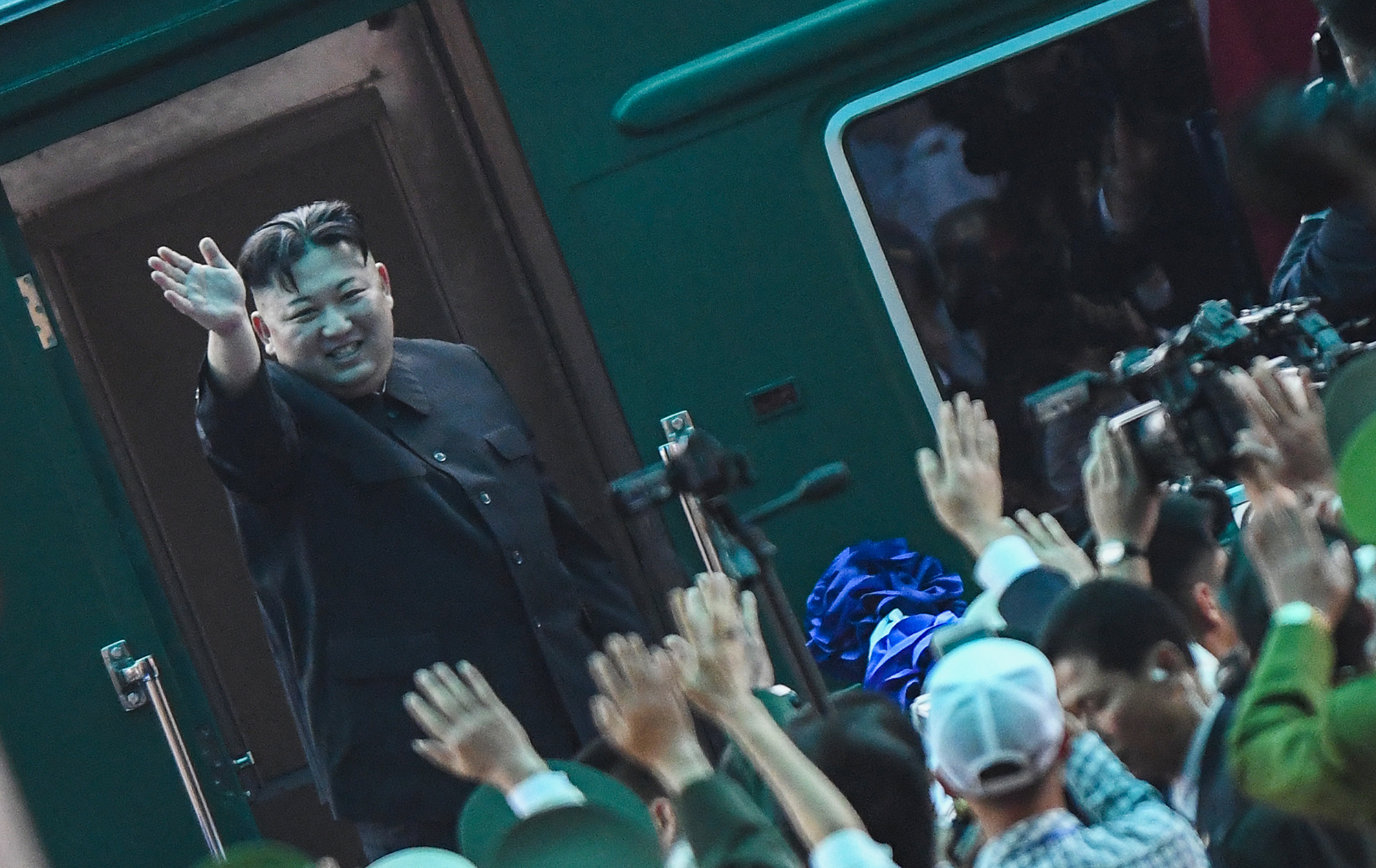
Supreme Leader of North Korea, Kim Jong Un (Photo: Getty Images)
North Korea cannot boast the level of support to other military formations or countries that Iran provides, but its cooperation with pariah states is evident. The DPRK's policy of circumventing sanctions is somewhat similar to the Iranian model, albeit with fewer resources allocated to it. Additionally, North Korea takes a somewhat opportunistic approach to what is happening on the international stage. While North Korea may not directly support a hypothetical Hezbollah, it won't miss the opportunity to join a newly formed coalition of countries whose policies diverge from the West.
In the case of North Korea, sanctions have undoubtedly taken a toll on the country's economy. Pyongyang has had to manually manage hyperinflation several times throughout the entire sanction period. However, this is unlikely to be a problem for the local population, which simply does not know what it means to "live well."
"In the case of North Korea and its poor resource base, where there are rocky soils and rivers almost everywhere, the story is the same – haven't lived well, so there's no reason to start," added Kyrychevskyi.
The example of North Korea and Iran illustrates a rather grim fact – sanctions do not achieve the intended effect. The goal of any sanctions measure is to compel a pariah country to abandon a militaristic policy that threatens the world. In reality, however, the pariah country finds ways to circumvent sanctions, builds its ideology of resistance on this basis, and, most alarmingly, convinces its population that enemies are everywhere, and they must tighten their belts to fight against them. It seems that this model fits well with contemporary Russia.
Adaptation economy
Sanctions against Russia were introduced gradually, but their current package is truly unprecedented. By the end of the second year of the full-scale war, Moscow found itself effectively isolated, experiencing more pain than Iran or North Korea, as Russia had established connections with the West for many years and had been successful in doing so. Even today, Western countries, witnessing everything Russia is doing in Ukraine, cannot completely sever ties with it, as it is too costly for both sides.
Sanctions hit Russia where it hurts the most – in the oil industry and energy resources. It was expected that the Russian economy would not withstand such pressure and would start to sink, dragging down Moscow's grand imperial plans for Ukraine. However, this did not happen – Putin still has the funds to finance the military machine. Moreover, Western analysts note the development of the Russian economy as one of the main indicators of GDP growth.
In the last nine months, wholesale and retail trade in Russia has grown, and economists observe dynamics in industries including construction. All indications suggest that the Russian economy has emerged from recession and is actively adapting to the current conditions. Like in the case of North Korea and Iran, Moscow has found ways to circumvent sanctions, but the scale of smuggling is larger, and industrial espionage has been developed to a considerable extent since the Soviet era.
China, the UAE, Turkiye, and several CSTO countries help Russia by supplying essential Western microchips and other valuable goods for the defense sector. By the way, in 2023, Turkiye alone supplied Russia with dual-use products worth $158 million, three times more than in 2022.
Western components regularly find their way into Russian rockets, UAVs, bombs, and more. China is the most frequent supplier. "Russians get engines from the Chinese. The Chinese have drones very similar to the Shahed-136. We are now in a situation where we can't hope that this sanctions regime will work somewhere," notes Kyrychevskyi.
China and India also help the Russian economy by increasing the import of Russian energy resources. For example, in October 2023, China purchased 31.5% of Russian oil from 100% of all supplies. This means that Moscow has shifted its focus from the Western to the Eastern market, thereby forming quite strong and possibly not entirely healthy political relations with China.
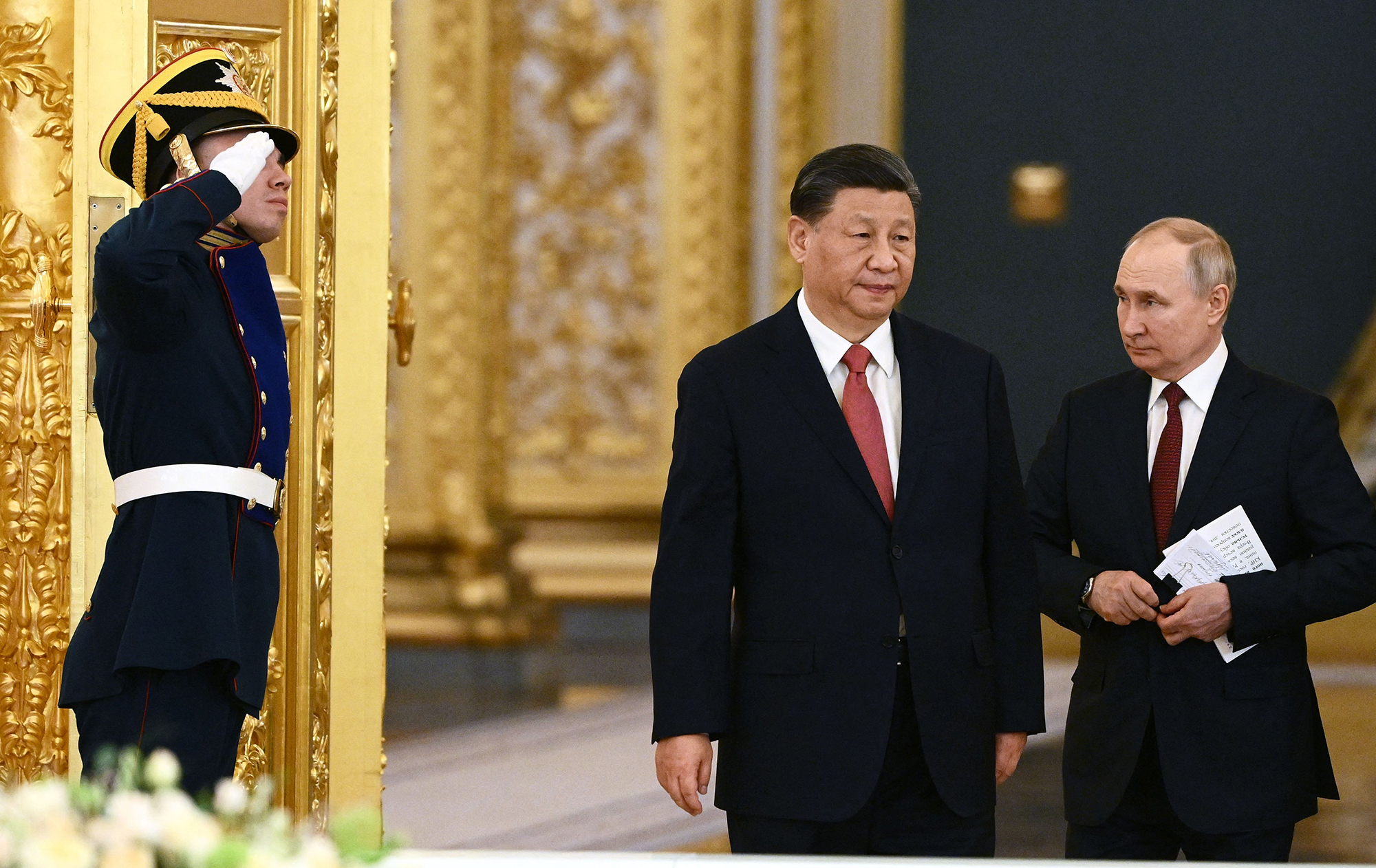
President of the People's Republic of China, Xi Jinping, and President of the Russian Federation, Vladimir Putin (Photo: Getty Images)
All this does not mean that there is stability and harmony in the Russian economy. Today, it manages to maintain a relative balance in many ways due to military expenditures. War has become a top priority for Russia, and this is reflected in the budget – in 2023, spending on national defense and national security constitutes almost a third of the state treasury. The defense industry requires massive human resources, and a large number of jobs have emerged in this sector.
"Russians demonstrate through propaganda not only that they have thousands of Lancets on the way but also that if you fulfill your plan, well done, you even get ice cream at work. Not to mention social packages, privileges, high salaries, etc. The story is not about Russia, North Korea, or Iran throwing money away. They are creating a privileged class," notes Kyrychevskyi.
Judging by what is happening on the front, Russia does not intend to surrender its positions, which means that soon the situation in the Russian Federation may look like this – people involved in the military-industrial complex will be rewarded with a relatively decent standard of living. Those living in the regions may not even feel a significant deterioration, as they were not living in abundance before. The sincere amazement of Russian servicemen at the sight of Ukrainian villages is confirmation of this.
"In sectors related to the military-industrial complex, investments are flowing. There may even be some improvements. Perhaps there is currently a revival of the societal 'Putin' contract – improvement of well-being in exchange for agreeing to such an order of things," Kyrychevskyi adds.
Perhaps soon, Russia will become a kind of hybrid of Iran and North Korea, where the resilient economy combines with the ideology of dictatorship and the imposition of an external enemy. However, the imposition of fear of the constantly threatening West has been ongoing for decades.
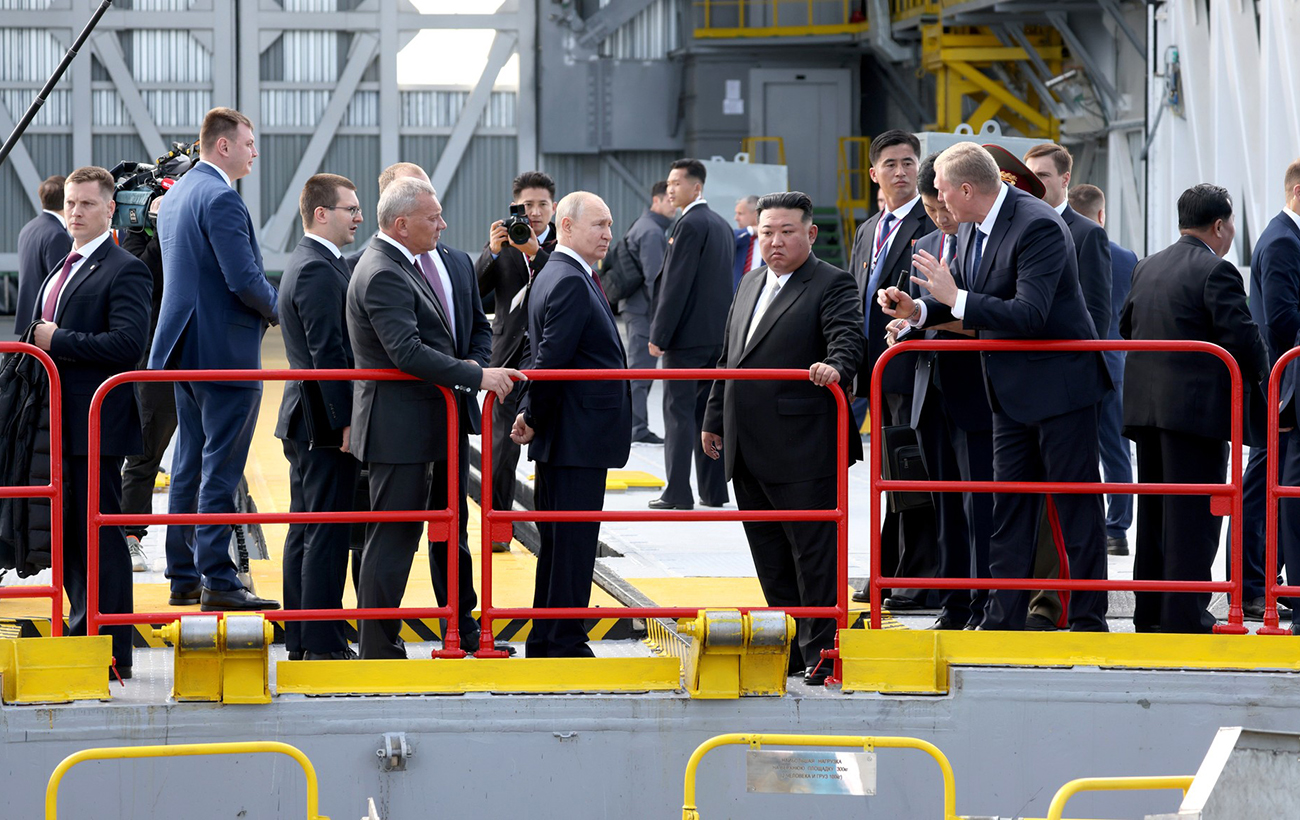
Putin and Kim Jong Un (Photo: Kremlin website)
***
The sanctions, intended to cripple Russia and bring it to its knees with a single powerful blow, evidently failed. Moscow is adapting, and the longer the war continues, the stronger Russia's new economic model becomes. Experts argue that the West missed the opportunity in 2022 to make a breakthrough and bring Russia to its knees. While the sanctions were unprecedented, they were also quite slow.
At the same time, Ukraine, facing an existential struggle, is trying to kickstart its military-industrial complex. Europe and the United States are undoubtedly assisting, but it appears to be insufficient.
For decades, Russia prepared for war, accumulating and multiplying its reserves. In the meantime, the West had no plans for warfare, so today, every unit of military equipment on negotiating tracks is a significant challenge for Ukraine. Russia has become an outcast, likely to continue avoiding sanctions and reshaping its economy following the examples of Iran and North Korea. However, Russia has far more capabilities than its situational allies. Consequently, the civilized world needs to realize now that sanctions, in their current form, are not working as intended, and an alternative mechanism must be found to curb the aggressor.

